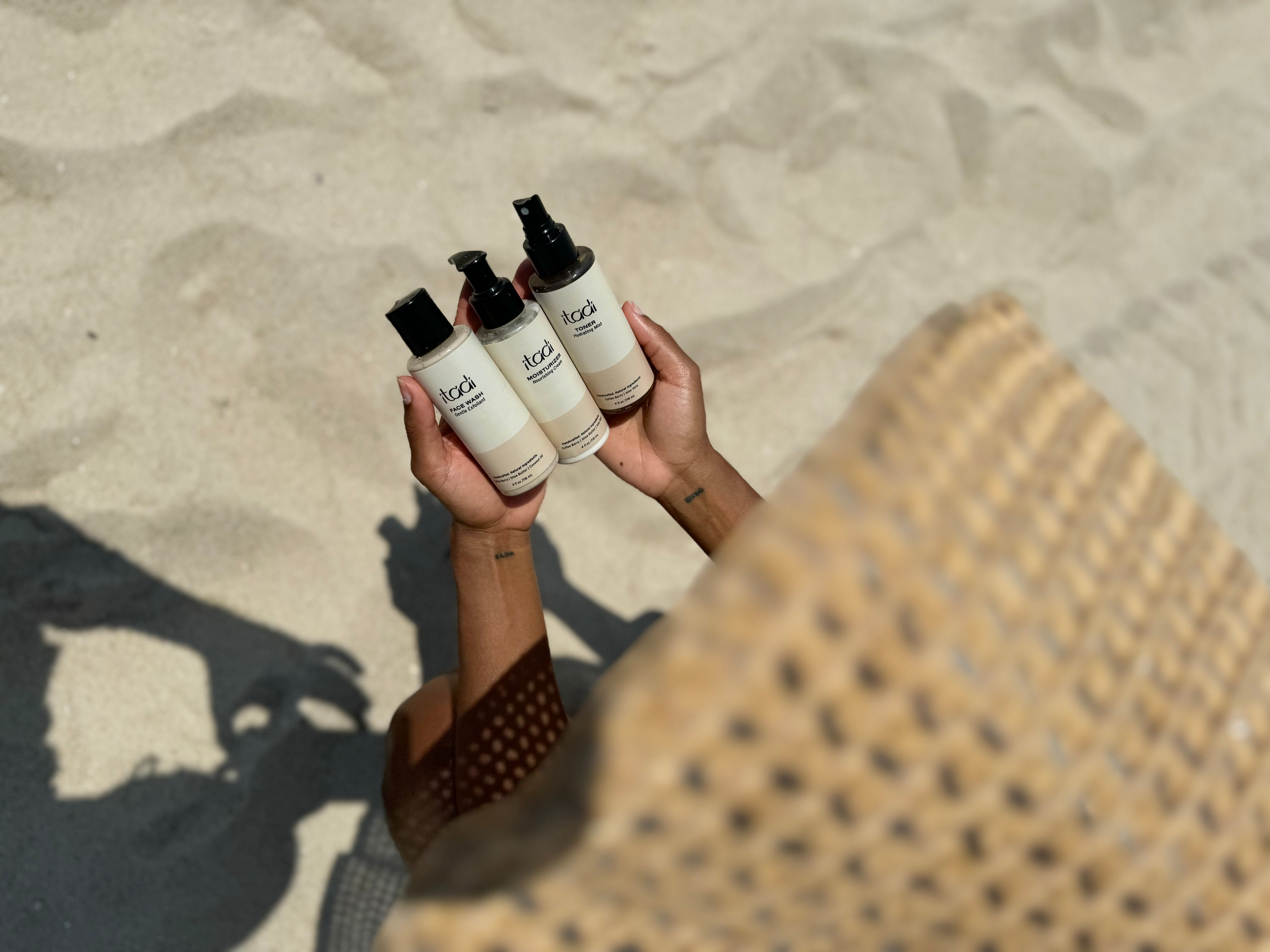In the world of skincare, ingredient lists can often feel like a foreign language. With an overwhelming array of scientific names and marketing buzzwords, it can be challenging to decipher what you're actually putting on your skin. As consumers become more conscious of the environmental and ethical implications of their choices, the demand for sustainable and transparent skincare has grown. This guide will help you decode skincare ingredients, empowering you to make informed decisions and choose products that are both effective and eco-friendly.
The Importance of Ingredient Transparency
Ingredient transparency is the cornerstone of sustainable skincare. It allows consumers to understand the origin, sourcing, and potential impact of each ingredient in a product. When brands are transparent about their formulations, it fosters trust and accountability.
Here's why ingredient transparency matters:
•Empowers Consumers: Knowing what's in your products allows you to make choices that align with your values, whether you're looking for vegan, cruelty-free, or organic options.
•Promotes Safety: Understanding the ingredients helps you avoid potential allergens or irritants.
•Drives Sustainability: Transparency encourages brands to source ingredients responsibly, considering their environmental and social impact.
•Combats Greenwashing: When brands are required to disclose their ingredients, it becomes more difficult for them to make misleading claims about their products' sustainability.
Sustainable Ingredients to Look For
When choosing sustainable skincare products, look for ingredients that are natural, renewable, and ethically sourced. Here are some examples of beneficial and eco-friendly ingredients:
•Plant-Based Oils: Jojoba, argan, rosehip, and coconut oils are excellent moisturizers and are derived from renewable plant sources.
•Botanical Extracts: Ingredients like aloe vera, green tea, and calendula offer a range of skin benefits, from soothing inflammation to providing antioxidant protection.
•Natural Butters: Shea butter and cocoa butter are rich in fatty acids and provide deep hydration. Look for fair-trade and organic certifications to ensure ethical sourcing.
•Clays: Bentonite and kaolin clays are natural purifiers that help to draw out impurities from the skin.
•Upcycled Ingredients: Some innovative brands are using upcycled ingredients, such as coffee grounds or fruit seeds, to create effective and sustainable skincare products.
Harmful Ingredients to Avoid
Just as important as knowing what to look for is knowing what to avoid. Many conventional skincare products contain ingredients that can be harmful to both your skin and the environment. Here are some common culprits to steer clear of:
•Parabens: These are synthetic preservatives that have been linked to hormone disruption. They can also harm marine life when they enter waterways.
•Sulfates (SLS and SLES): These are harsh detergents that can strip the skin of its natural oils. They are also known to be toxic to aquatic organisms.
•Phthalates: These are chemicals used to enhance the texture of products. They have been linked to endocrine disruption and can have negative environmental impacts.
•Microplastics: These are tiny plastic particles that are often added to exfoliating products. They do not biodegrade and can accumulate in oceans and harm marine life.
•Synthetic Fragrances: These can contain a cocktail of undisclosed chemicals, some of which may be allergens or irritants. They can also contribute to air pollution.
Understanding Certifications and Labels
Certifications and labels can be valuable tools for identifying sustainable skincare products. Here are some common certifications to look for:
•USDA Organic: This certification ensures that the ingredients are grown and processed without synthetic pesticides or fertilizers.
•Ecocert: This is a leading European certification for organic and natural cosmetics. It has strict standards for ingredient sourcing, manufacturing, and packaging.
•Leaping Bunny: This certification guarantees that the product and its ingredients have not been tested on animals.
•Certified Vegan: This label indicates that the product does not contain any animal-derived ingredients.
•B Corp: This certification is awarded to companies that meet high standards of social and environmental performance, accountability, and transparency.
Decoding skincare ingredients is a crucial step towards building a truly sustainable beauty routine. By understanding what to look for and what to avoid, you can make choices that are not only better for your skin but also for the planet. Look for brands that prioritize ingredient transparency, use natural and ethically sourced ingredients, and have credible certifications. Your journey to sustainable skincare starts with knowledge, and with this guide, you are well-equipped to make a positive impact with every purchase.



0 comments